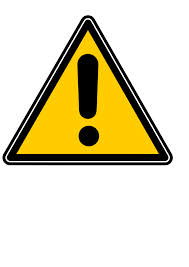Overview of Relative Pronouns
Relative pronouns identify nouns that have been used in a sentence and provide information about that noun ("who", "which", "that" in English). For example L'homme que j'ai rencontré, s'appelle Richard. Here we see that the relative pronoun que is used to make a link between a noun (l'homme) and information about the noun.
Let's look at the relative pronouns used in French:
qui: This is a subject pronoun and it's the one to use when you would say "who" in English. It is also the one used to refer to a person after prepositions (e.g.: de qui, à qui, pour qui, etc.)
que: Remember, this is used to refer to a noun that usually follows the verb (the direct object) and tends to answer the question "what?". That said, there are cases where it would correspond to the direct object "who", e.g.: "The person who I saw" = La personne que j'ai vue.
There are also cases where the form que is not a relative pronoun, but rather a conjunction (e.g.: Je veux que tu viennes) where it simply joins two clauses.
ce qui: This is used to link to a subject that corresponds to a group of words. Consider for example the sentence: Ce qui me fait peur, c'est perdre la liberté. Here, ce qui functions as a subject of fait peur and corresponds to the entire verb phrase perdre la liberté.
ce que: This is used to link to a direct object that is a group of words. Consider for example the sentence: Il est parti sans rien dire, ce que je n'ai pas apprécié. Here, ce que functions as a direct object (it answers the question "apprécier what?") and corresponds to the entire sentence Il est parti sans rien dire.
dont: the most common translations of this are "whose" and "of/about who(m)", e.g.: C'est la femme dont j'ai parlé. It is never used in interrogative sentences and never preceded by a preposition.
duquel, de laquelle, desquels, desquelles: these tend to be used with prepositional phrases describing location, e.g.: autour de, à l'extérieur de, près de, à côté de, etc. e.g.: Le parc à côté duquel j'habite. In other contexts, dont is more common with expressions that involve de.
où: This means "where" and is used to refer to a location, e.g.: La ville où je suis né.
lequel, laquelle, lesquels, etc.: these forms tend to be preceded by prepositions and refer to things rather than people. For example, C'est la raison pour laquelle je suis parti. The most common translation of these forms is "which". Note that when these are preceded by à and de, they change to auquel, auxquels, auxquelles and duquel, desquels, desquelles.
The following table provides a summary of French relative pronouns:
| Relative Pronouns |
| Form |
Function |
example |
remarks |
| qui |
-subject
-animate object of a preposition
|
La fille qui nage bien.
Le garçon à qui j'ai parlé.
|
-answers the question "who?"
-answers the question "to who(m)?"
|
| que |
-direct object |
Le livre que je lis. |
-answers the question "what?" |
| ce qui |
-refers to a group of words functioning as a subject |
Il est parti, ce qui me rend triste. |
|
| ce que |
-refers to a group of words functioning a a direct object |
Il a crié, ce que je n'ai pas appréicé. |
|
| dont |
-used to link to a noun following a verb/expression that is followed by de. |
La femme dont tu m'as parlé; l'enfant dont je suis fier. |
-never preceded by a preposition; never used in an interrogative |
| ce dont |
-refers to an idea related to a verb/expression that is followed by de.
-no specific noun precedes the verb/expression
|
Ce dont il parle, c'est intéressant. |
-generally means "about which" or "what". |
| où |
-used to link to a location |
L'endroit où je travaille |
-don't forget the accent |
| lequel, laquelle, lesquelles |
-used after prepositions
-used in interrogatives
|
L'édifice dans lequel j'habite ; la page sur laquelle j'écris. |
-used with things more so than with people |
| auquel, auxquels |
-results from the combination of à + lequel, etc. |
Le film auquel je pense. |
-write these as one word |
|
duquel, desquels
de laquelle
desquelles
|
-results from the combination of de + lequel, etc. |
Le parc à côté duquel je travaille. |
-write these as one word
-tend to follow près and à côté
|

- When que is followed by a verb in the passé composé, you have to show agreement with a preceding feminine or plural direct object, e.g.: La pomme que j'ai mangée.
- If the verb is normally followed by de, use dont, e.g.: le filme dont j'ai parlé.
- There is never past participle agreement after dont, e.g.: la fille dont j'ai parlé.